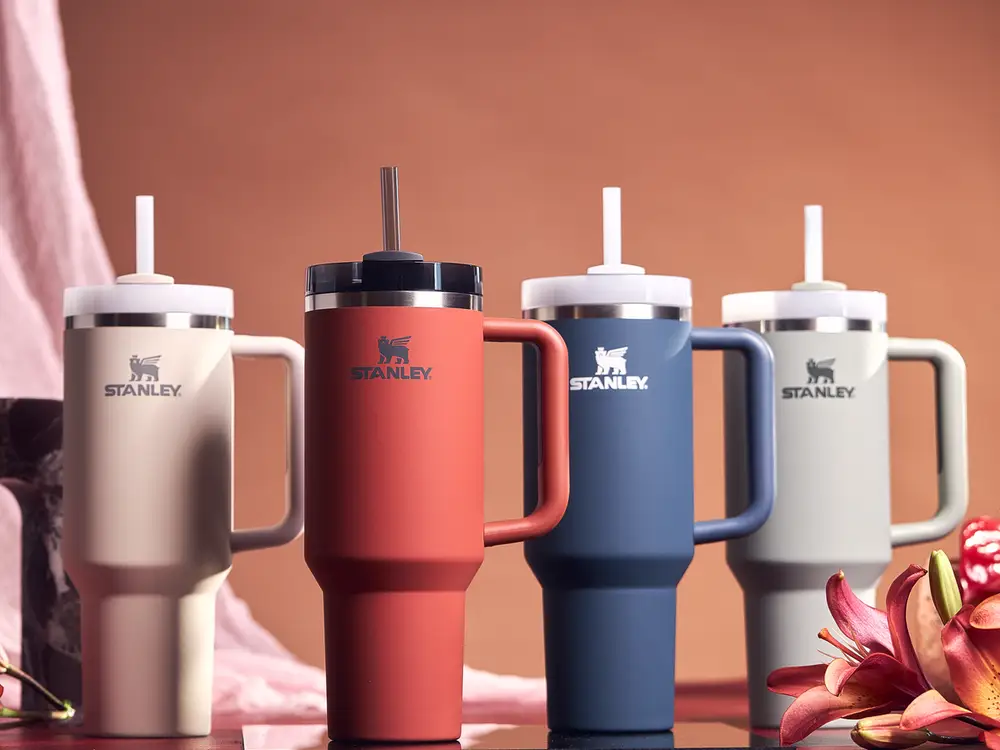Stanley cups are ‘on the way out’ along with skinny jeans, wealthy teens say

Stanley has said it has sold more than 10 million Quenchers in total.
The Stanley cup craze over the past year that cost many Americans money, time, and, in some cases, their mental health and employment, may have peaked.
While Stanley’s multi-colored insulated cups still have considerable caché, upper-income teens told Piper Sander that the products could soon see the same fate as skinny jeans.
The investment bank’s annual Taking Stock With Teens survey, published earlier this week, indicated a notable trajectory in the popularity of the Stanley trend.
“Stanley cups placed as the #2 ‘Most Popular Female Fashion Trend’ among the upper-income cohort — while simultaneously placing as the #2 ‘Fashion Trend on its Way Out’ among upper-income females,” analysts Peter Keith and Alexia Morgan said in a note. Upper-income male teens surveyed ranked Stanley cups as their fifth-most fashion trend on the way out.
The survey covered more than 13,500 teens across 47 US states, with an average age of 15 and an average household income of $67,440.
Keith told B-17 the survey’s fashion trend question is open-ended, meaning that respondents are not prompted by a list of options.
Stanley did not respond to a request for comment on the survey.
Led by its jumbo 40-ounce Quencher, Stanley’s annual sales increased from $94 million in 2020 to an estimated $750 million in 2023, the company told CNBC. Stanley also said it has sold more than 10 million Quenchers in total. The brand is owned by the privately held PMI Worldwide and doesn’t routinely disclose financial results.
Stanley cups weren’t on the radar for upper-income teen girls in the survey two years ago and only broke into the top 10 trends last fall with 1% of the vote. Within six months, the mugs had rocketed past crop tops into third place and settled into second behind Lululemon with 19% of the vote.
“They really kind of struck gold with these larger, thick cups, with the handle and a straw,” Keith told B-17. “The brand just took off like wildfire. I mean, it’s one of the better success stories for a brand in the last two, three years.”
This year, however, the brand was also making its way up the “on the way out” rankings in the report, which Keith says was a question for the first time in the spring survey. (Skinny jeans have maintained a firm hold on the top spot for uncoolness this year — sorry, millennials.)
That probably puts Stanley’s coolness somewhere between fashion-forward Owala and mainstay Yeti.
Keith also said that Yeti isn’t a top pick for teen girls the firm surveyed, a group that can do a fair amount of brand swapping every few years. Remember VSCO girls’ Hydro Flasks?
Owala fans, meanwhile, have been causing headaches for some Target workers by mixing and matching the lids and bottles to create custom color combos.
Yeti has been chugging along with 84% brand awareness among teens, with two-thirds of those surveyed saying their households own a Yeti product. What’s more, the average Yeti-owning household has more than five Yeti products, according to the survey.
Yeti has delivered quarterly sales growth percentage increases in the mid-teens, bringing in nearly $520 million in the last fiscal year. In Piper Sandler’s note, Keith and Morgan said Stanley’s rise hasn’t appeared to eat into Yeti sales or shelf space.
“We’ll continue to monitor it,” Keith told B-17. “When brands are making that transition from cool to uncool, they probably do spend some time in a period where they’re both cool and uncool at the same time. So we’ll see which side Stanley ends up on over the next year or so.”






